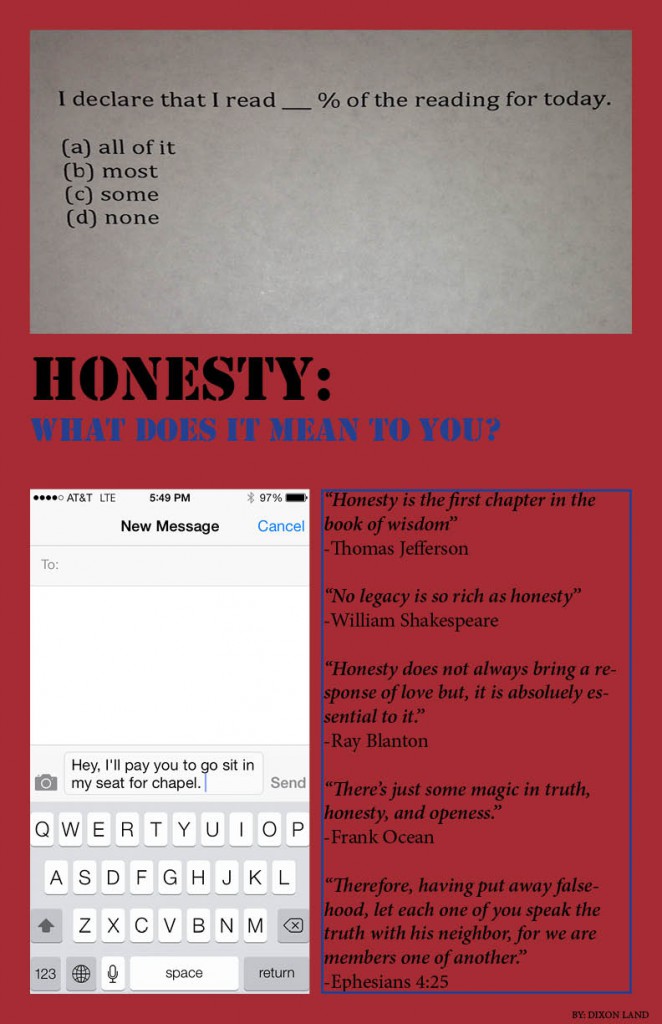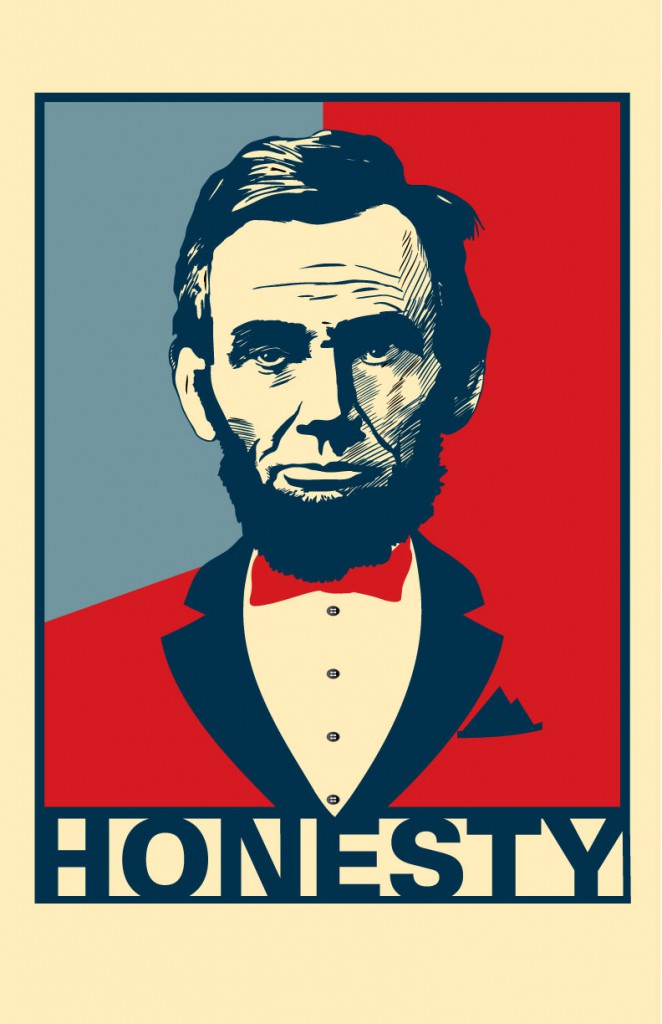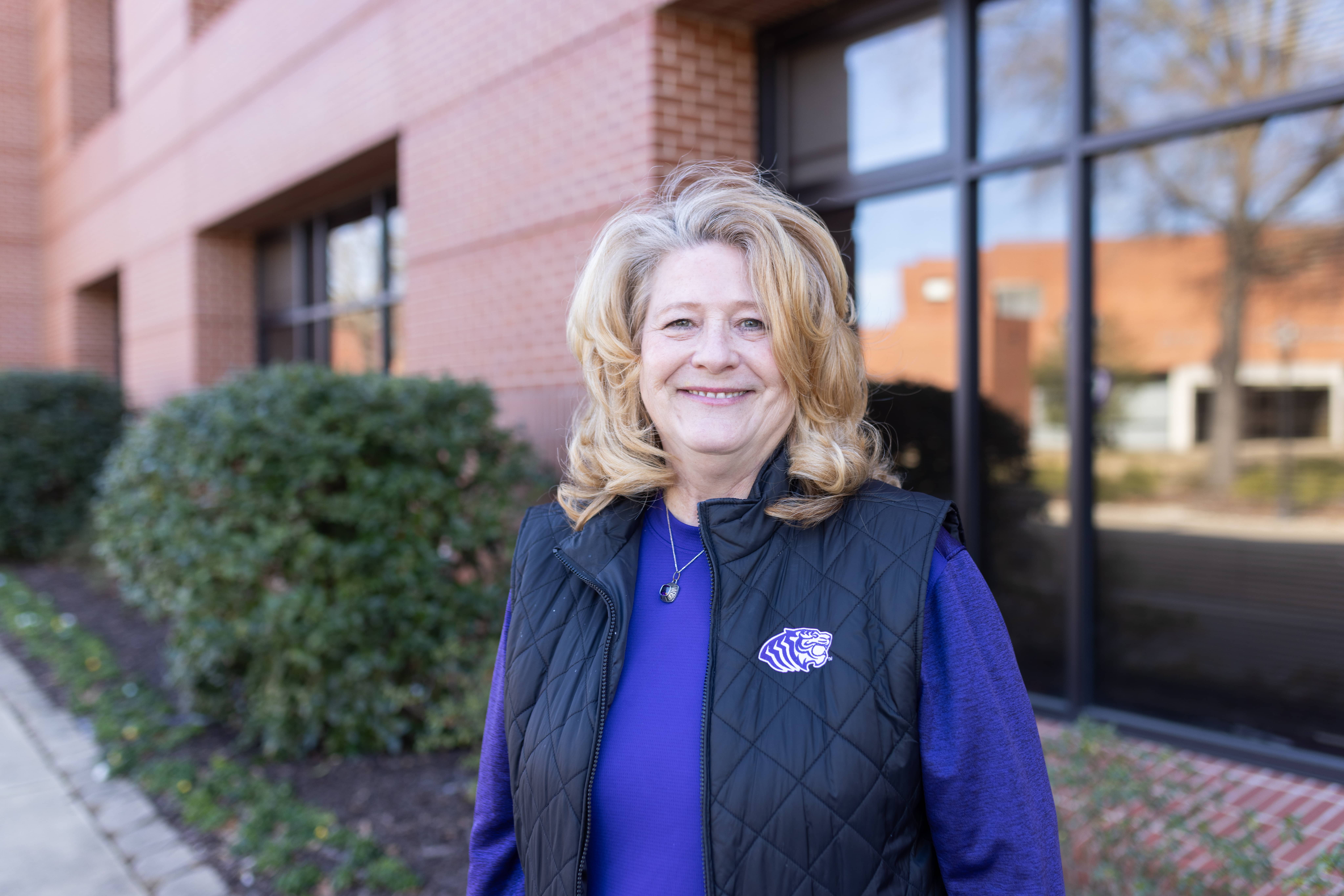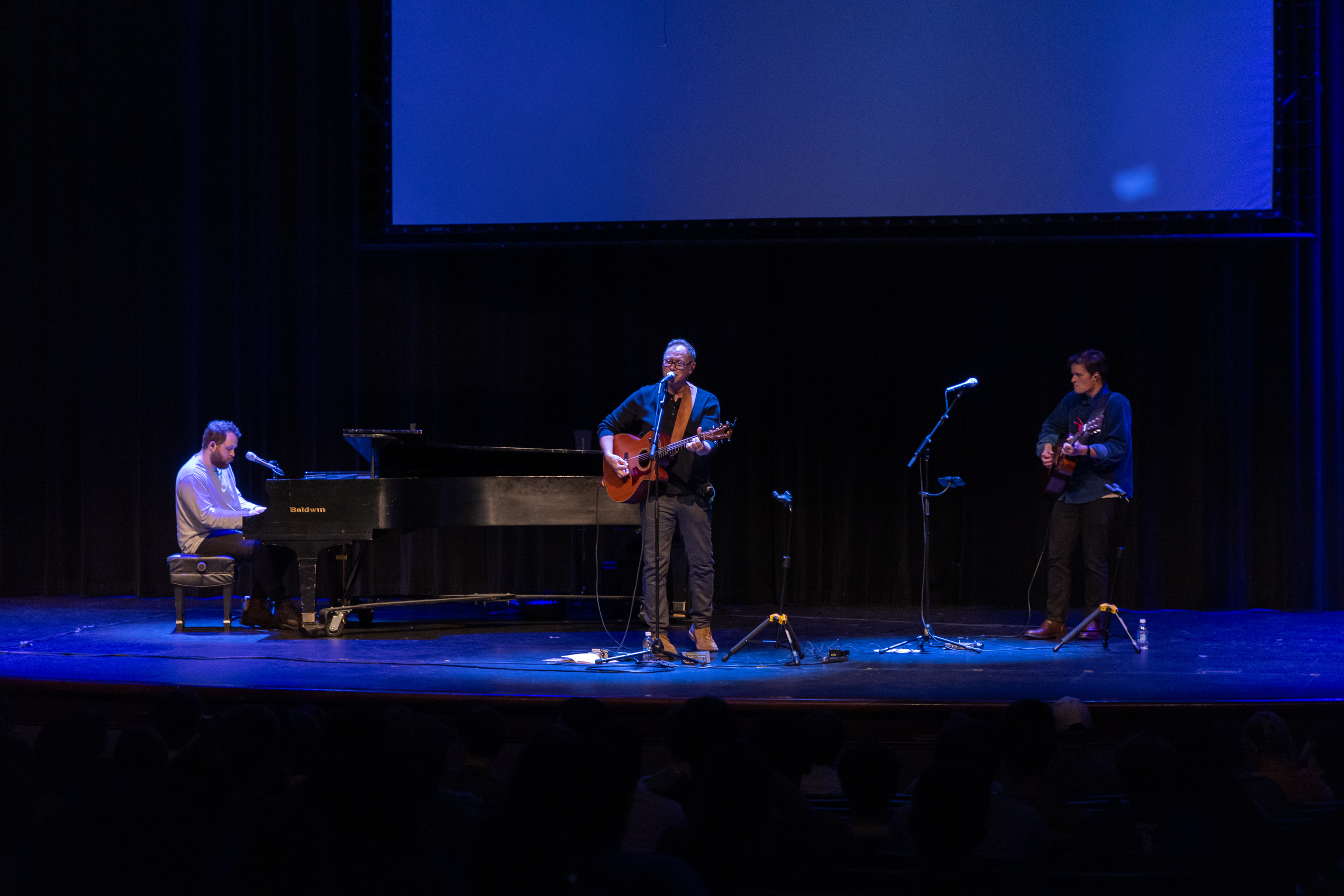For the second year in a row, students of Ouachita Baptist University were encouraged to take part in a project open to the entire campus to showcase the values of “honesty” and what that looks like in students’ lives. First and second place prizes were awarded in a video category, an essay category and a poster category.
Essays
1st place, Ellen Eubanks
A couple years ago, a Twitter account called OBUAnonymous caused quite a bit of controversy around campus. Even though I didn’t have a Twitter at the time, I still heard a few debates about whether it was the best thing happening on campus, or practically of the devil. The way the account worked was that a person would send it a direct message, which would then be tweeted anonymously. Regardless of whether the tweets were positive or negative, I find that such anonymous honesty is cheap. People say things that they normally wouldn’t, because there was no way it would be linked to them. They could escape having to deal with any consequences of their words, because no one knew who had said them.
John Suler’s article “The Online Disinhibition Effect” discusses the role of what he terms “dissociative anonymity” in the eponymous phenomenon. He describes how anonymity allows people to “separate their actions online from their in-person lifestyle and identity.” In online discussions, especially anonymous ones, participants feel that what they say is not connected with who they are. It could almost be said that people use personas when speaking online. What they say is not truly reflective of who they are.
Some might claim that this allows people to be more honest. When a person can’t be identified with their words, they are freer to honestly say what they feel. However, I would argue that this sort of honesty often isn’t worth much. Since people don’t have to take responsibility for their words, they don’t think through what they say as much. They may say things they don’t really believe. Anonymity removes any context, any credibility. You have no basis with which to judge an anonymous comment. You cannot tell if they are speaking from a position of expertise, or are just throwing out something that they have given no thought.
I suggest that in most cases, honest remarks are more helpful if they have a name and identity attached to them. Honesty and integrity are connected, and as Suler says, “The online self becomes a compartmentalized self.” Online commenters speak from a disintegrated self. Their “honesty” does not come from their whole self. Peopl to whom such a comment is directed have few ways to evaluate it. How much weight should they give such a comment, how much should they trust the speaker? Discussions in which participants take responsibility for their words are much more productive. Whatever honesty may be found in anonymous words has little value apart from knowledge of who spoke them.
2nd place, Ally Lemos
“Honesty is the best policy.” How often have you heard this phrase casually quoted? It seems like an easy enough rule to follow until you are approached with a difficult decision. How much of the reading did you complete? “I skimmed the majority of the passage. Well, at least the headings. Definitely 90%.” There’s no one standing at the cashier stand. “I pay enough tuition to cover this.” Suddenly, being honest does not seem like such a simple task. We attempt to warp how we are seen or how we act to fulfill our selfish desires. Yet, honesty is a valued trait that should be a focal point in the development of a Christian life.
One definition of honest is “honorable in principles, intentions, and actions” (“honest,”). This means that honesty reaches far beyond merely telling the truth. Oftentimes, we view honesty in the context of one of its antonyms: lying. We assume that, if we avoid telling lies, we are portraying honesty. But honesty delves into a deeper realm. Honesty is a foundational characteristic that drives the motives and deeds of a person. Sometimes acting honestly occurs after an event. As human beings, we make mistakes even when we are striving to do what is right, but, when we are working on growing in honesty, we can avoid compiling our blunders. We can admit when we have failed and accept the consequences of our mistakes rather than deceiving ourselves and those around us into believing something that is not true, even when this deceit would improve our appearance.
Ouachita Baptist University emphasizes honesty as a main component of one of their five foundational values. OBU recognizes that, in the area of character, “respect and honesty undergird responsible citizenship and stewardship” (“Tiger handbook,” 2013). Being a responsible citizen of OBU and the world means that honesty provides fundamental support in the decision-making of each member of the community. Our professors hold us to a high standard and treat us as responsible adults deemed worthy of their trust. It would not be hard to cheat on a test to receive a higher grade. Maybe this would make you look better to your professor, your friends, or your future graduate school. Unfortunately, whether your actions are discovered or not, a foundational aspect of your character has been compromised to create a false appearance that transforms you into who you want to appear to be rather than who you actually are.
Being honest is not something that comes natural to us, but it is something that is valued. After more than 400 case studies, honesty and integrity were found to be the most commonly occurring desirable traits in a leader (“Integrity,”). As Christians, our desire should be to lead unbelievers to Christ. Without developing honesty in our lives, we are sabotaging our chances of doing so. We must be humble enough to accept the consequences of our thoughts and actions and allow God to use us as honorable leaders of His plan.
Posters






